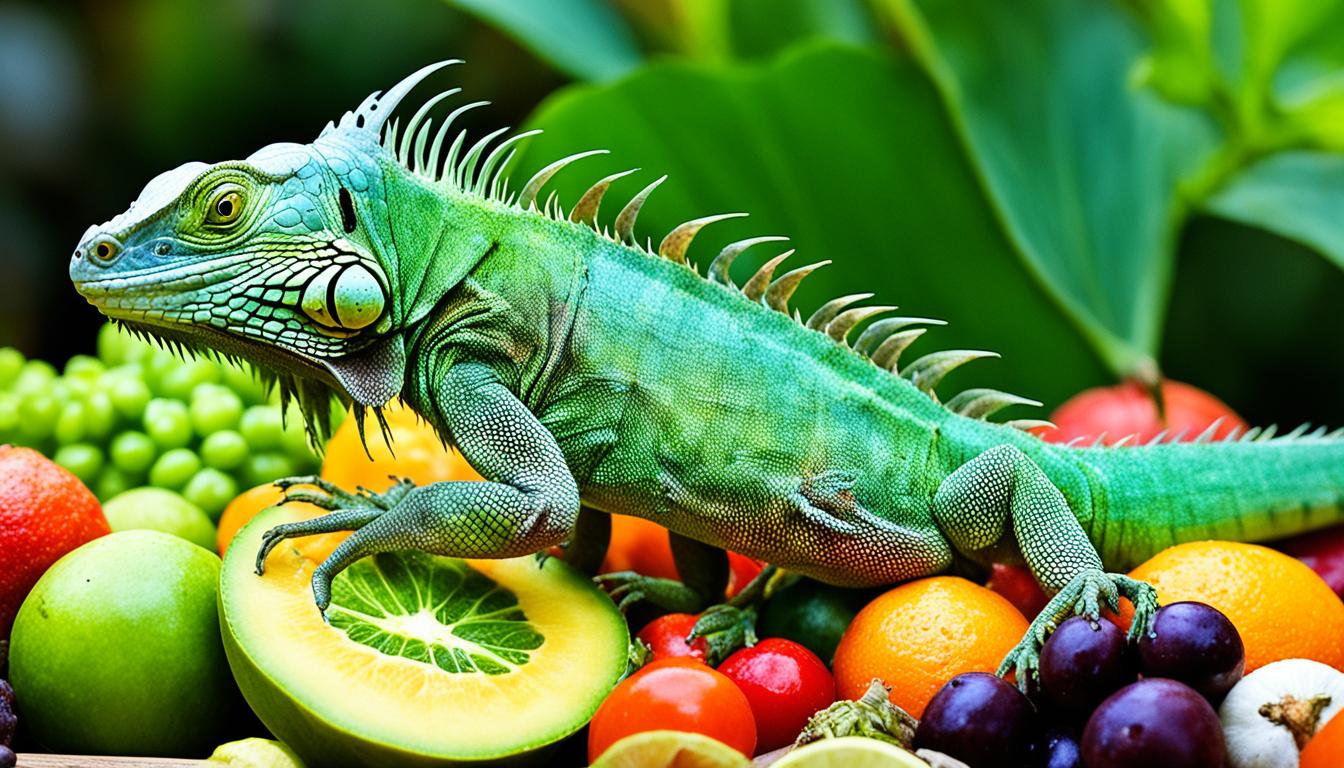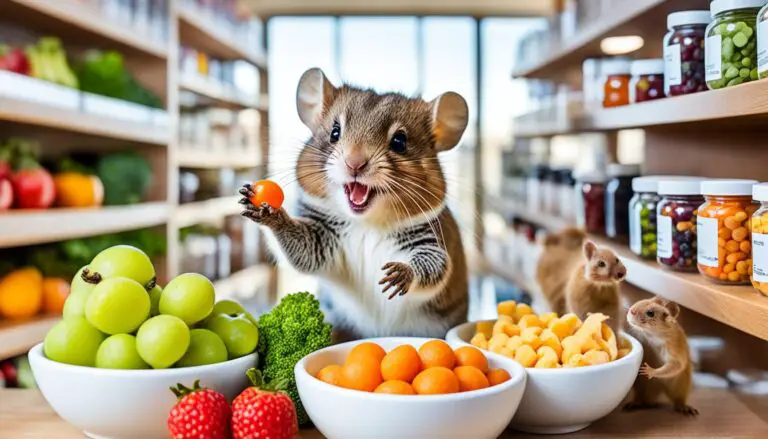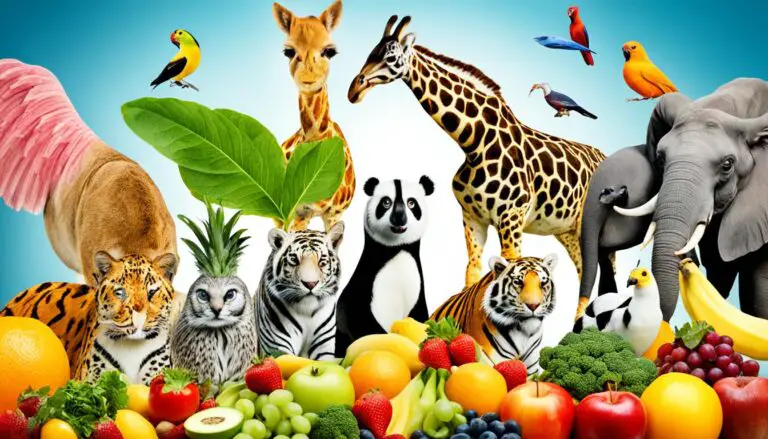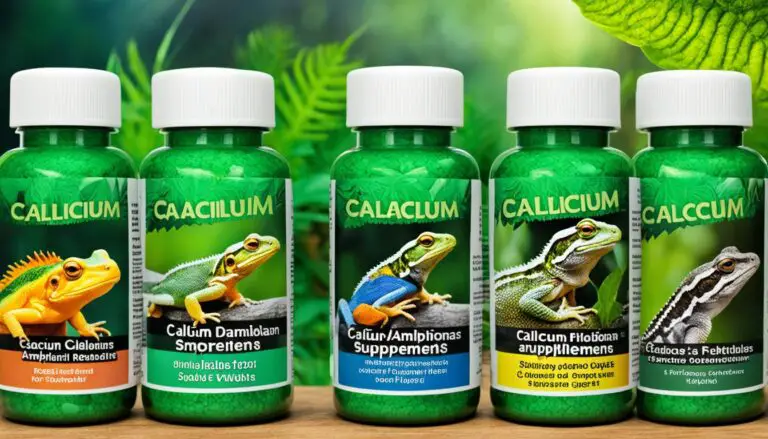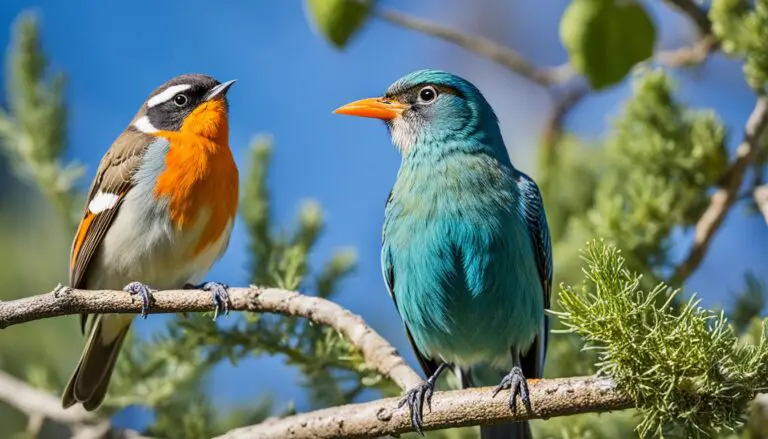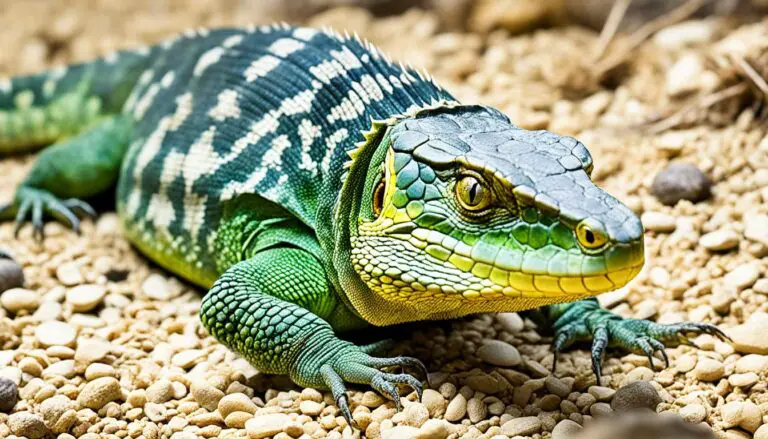Nutritional Deficiencies in Exotic Pets and How to Prevent Them
Did you know that nutritional deficiencies can have serious consequences for the health of exotic pets? It’s true! Providing a balanced diet is crucial to prevent these deficiencies and ensure the optimal health and well-being of your unique animal companion.
When it comes to exotic pets, common health issues can often be traced back to improper nutrition. Whether they are herbivorous, omnivorous, or carnivorous, each species of exotic pet has its own specific dietary requirements that must be met for their overall health.
To help you understand the importance of exotic pet nutrition and how to prevent nutritional deficiencies, we have compiled a comprehensive guide that covers everything from dietary guidelines to special considerations for different types of exotic pets. By following these recommendations and seeking advice from exotic pet veterinarians, you can provide the best diet for your pet and keep them healthy for years to come.
Key Takeaways:
- Proper nutrition is crucial for the health of exotic pets.
- Understanding the specific dietary requirements of your exotic pet is essential.
- Herbivorous exotic pets need foods rich in vitamins A and D3 and a proper Ca:P ratio.
- Omnivorous exotic pets require a balanced diet of plant and animal matter.
- Carnivorous exotic pets primarily rely on prey species for their nutrition.
Understanding Exotic Pet Nutrition
Exotic pets come in a wide variety of species, each with its own specific dietary requirements. Some exotic pets are herbivorous, others are omnivorous, and some are carnivorous. To ensure the best nutrition for your exotic pet, it is important to understand their specific dietary needs and provide a well-balanced diet that mimics their natural food sources. By carefully balancing their diet and meeting their unique dietary requirements, you can help prevent nutritional deficiencies and promote their overall health.
One of the key factors in exotic pet nutrition is determining their primary diet type. Herbivorous exotic pets, such as rabbits and certain reptile species, require a diet rich in plant matter. On the other hand, omnivorous exotic pets, like certain bird species and small mammals, have more diverse dietary needs that include both plant and animal matter. Lastly, carnivorous exotic pets, such as snakes and ferrets, require a primarily animal-based diet.
Understanding the dietary needs of your exotic pet is essential to providing them with the proper nutrition. Feeding a well-balanced diet that contains the necessary nutrients, vitamins, and minerals is crucial for their overall health and well-being. To achieve this, it is recommended to consult with a veterinarian who specializes in exotic pet care or seek guidance from reputable sources that provide dietary guidelines for specific exotic pet species.
Properly balancing an exotic pet’s diet involves considering factors such as age, activity level, and any specific health conditions they may have. Young animals may require different proportions of nutrients compared to adults, and certain health conditions may necessitate dietary modifications. By tailoring their diet to meet their unique needs, you can help prevent nutritional deficiencies and promote optimal health.
To ensure a well-balanced diet, it is important to provide a variety of appropriate food items that meet the exotic pet’s dietary requirements. This can include offering a mix of fresh fruits, vegetables, specific types of protein, and, in some cases, supplements that provide essential vitamins and minerals. Additionally, it is advisable to avoid feeding exotic pets foods that are not suitable for their species, such as processed human foods or commercially available pet foods intended for other animals.
“Balancing an exotic pet’s diet is crucial for their overall nutrition and well-being. By providing a variety of appropriate food items and meeting their specific dietary requirements, we can help prevent nutritional deficiencies and support their optimal health.”
Understanding and meeting the specific dietary requirements of your exotic pet is a crucial aspect of responsible pet ownership. By providing a well-balanced diet that mimics their natural food sources, you can help ensure their nutritional needs are met. The next sections will dive deeper into the special dietary considerations for herbivorous, omnivorous, and carnivorous exotic pets, as well as the consequences of nutritional deficiencies and the importance of proper husbandry in exotic pet nutrition.

Special Dietary Considerations for Herbivorous Exotic Pets
Herbivorous exotic pets have unique dietary needs that primarily revolve around plant fiber. To ensure their nutritional well-being, it is crucial to provide a diet that is rich in vitamins A and D3, with a calcium-to-phosphorus (Ca:P) ratio of at least 1.5-2:1. It is important that the foods provided are low in fats, oils, proteins, thiocyanates, and oxylates.
While foraging for food outdoors can supplement their diet, it is recommended to offer additional foods to ensure a balanced nutrition. Avoid feeding them foods that are designed for dogs, cats, and humans, as these may not meet their specific dietary requirements.
To ensure herbivorous exotic pets receive the necessary nutrients, it is advisable to supplement their diet with calcium, iodine, vitamin D3, and vitamin A. These supplements help maintain their overall health and prevent nutritional deficiencies.

| Food Item | Benefits |
|---|---|
| High-fiber leafy greens (e.g., kale, collard greens, dandelion greens) | Rich in essential vitamins and minerals |
| Non-starchy vegetables (e.g., bell peppers, zucchini, cabbage) | Provide variety and additional nutrients |
| Grass or hay | Important source of fiber |
| Natural herbivore pellets | Additional source of essential nutrients |
| Occasional fruit treats (e.g., melons, berries) | Offered sparingly as a source of natural sugars |
By carefully balancing the diet and providing appropriate supplementation, it is possible to meet the specific dietary requirements of herbivorous exotic pets and promote their optimal health and well-being.
Meeting the Dietary Needs of Omnivorous Exotic Pets
Omnivorous exotic pets have unique dietary requirements as they consume both plant and animal matter. The proportions of these food sources may vary depending on the species and the age of the animal. Juveniles typically require a higher proportion of animal matter to support their growth and development, while adult omnivorous exotic pets tend to shift more towards a herbivorous diet.
To ensure the best nutrition for your omnivorous exotic pet, it is important to mimic their natural diet by offering a variety of appropriate animal proteins. This can include earthworms, slugs, snails, and maggots, which provide essential nutrients and enrich their diet. These protein sources can be combined with a variety of plant-based foods to create a well-rounded and balanced meal for your pet.
However, it is crucial to pay attention to the quality and nutritional value of the animal proteins offered to omnivorous exotic pets. It is recommended to feed them invertebrates that have been gut-loaded with minerals and vitamins to ensure they receive adequate nutrition. This ensures that the prey items are not only a source of protein but also contribute to the overall nutritional needs of the pet.
Providing a balanced diet with the proper ratio of plant and animal matter is essential to prevent any nutritional deficiencies in omnivorous exotic pets. By meeting their specific dietary needs, you can help promote their overall health and well-being, ensuring they thrive in your care.

Key Points:
- Omnivorous exotic pets consume both plant and animal matter.
- Offer a variety of appropriate animal proteins such as earthworms, slugs, snails, and maggots.
- Ensure the animal proteins are gut-loaded with minerals and vitamins to enhance their nutritional value.
- Create a well-balanced diet with the proper ratio of plant and animal matter.
- By meeting their specific dietary needs, you can prevent nutritional deficiencies and promote their overall health.
Proper Nutrition for Carnivorous Exotic Pets
Carnivorous exotic pets have relatively straightforward dietary needs, as they primarily require prey species for their nutrition. To ensure their optimal health, it is important to provide a well-rounded diet that meets their specific dietary requirements and ensures proper nutrition. Here are some essential guidelines to keep in mind when feeding carnivorous exotic pets:
- Offer a variety of invertebrate and vertebrate prey species: Carnivores require a diverse range of prey to obtain the necessary nutrients for their overall health and well-being. This includes offering a combination of invertebrates like crickets, mealworms, and waxworms, as well as small vertebrates like mice, rats, and chicks. Feeding a variety of prey species helps ensure a balanced and nutritious diet.
- Gut-load prey species for invertebrate hunters: For exotic pets that specifically hunt invertebrates, it is crucial to provide gut-loaded prey. Gut-loading involves feeding the prey with nutritious foods that enhance their nutritional content. This ensures that the prey offers adequate nutrition to the carnivorous pet. It is recommended to dust prey insects with calcium and vitamin D3 supplements before feeding them to your exotic pet.
- Consider thiamine supplementation for carnivores consuming frozen fish: Some aquatic carnivorous exotic pets, such as certain species of fish, may rely on frozen fish as part of their diet. However, frozen fish can contain thiaminases, which can reduce the availability of thiamine (vitamin B1) in the pet’s body. To prevent thiamine deficiency, it may be necessary to supplement their diet with thiamine.
By providing a variety of prey species and ensuring proper gut-loading, you can meet the dietary needs of carnivorous exotic pets and help prevent nutritional deficiencies. Consult with an exotic pet veterinarian for specific dietary recommendations based on your pet’s species and individual needs.
The Consequences of Nutritional Deficiencies in Exotic Pets
Nutritional deficiencies in exotic pets can have serious health consequences. It is essential to provide them with a well-balanced diet to prevent these deficiencies and ensure their overall well-being. Failure to address nutritional needs can lead to various common health issues in exotic pets.
One of the common health problems linked to nutritional deficiencies is metabolic bone disease. This condition arises from a lack of essential minerals like calcium and phosphorus, resulting in weakened bones, pathologic fractures, and joint problems. Exotic pets suffering from nutritional deficiencies may also experience muscle tremors and seizures, which can be distressing and debilitating.
Vitamin deficiencies are another consequence of inadequate nutrition. A deficiency in vitamin A, for example, can lead to eye and ear problems, as well as dental issues. Similarly, a lack of vitamin C can cause symptoms like fatigue, slow healing wounds, and joint pain. These deficiencies can significantly impact the quality of life for exotic pets.
In addition to specific deficiencies, improper nutrition can lead to weight-related problems, such as obesity. Exotic pets that are not provided with a suitable diet may become overweight, leading to various health complications like heart disease, diabetes, and reduced mobility.
To prevent these detrimental consequences, it is crucial for exotic pet owners to prioritize their pets’ nutritional needs. Providing a balanced diet that meets their specific requirements, with the guidance of an exotic pet veterinarian, is essential. By taking proactive measures to prevent nutritional deficiencies, you can ensure the long-term health and well-being of your unique animal companion.

Importance of Proper Husbandry in Exotic Pet Nutrition
Proper husbandry is essential in ensuring the nutritional well-being of exotic pets. While providing a balanced diet is crucial, creating an appropriate environment that meets their unique husbandry requirements is equally important.
Various factors, such as temperature, humidity, lighting, and enclosure design, can significantly impact the digestion and absorption of nutrients in exotic pets. For example, reptiles require specific temperature gradients and UVB lighting to properly metabolize calcium, which is crucial for their bone health. Birds, on the other hand, thrive in environments with appropriate humidity levels to prevent dehydration and maintain healthy feather condition.
Ensuring optimal husbandry conditions for exotic pets not only aids in the effective utilization of nutrients but also helps prevent potential nutritional deficiencies.
Regular veterinary check-ups and consultations with exotic pet veterinarians are instrumental in ensuring that your pet’s diet and husbandry are optimized for their specific needs. These professionals can provide guidance on maintaining the appropriate environment, identify any potential issues, and make necessary recommendations to enhance your pet’s overall well-being and nutritional health.
Remember, the well-being of exotic pets isn’t solely reliant on their diet. By paying equal attention to their husbandry requirements, you can provide a nurturing and thriving environment that supports their nutritional needs and promotes their overall health and happiness.
| Nutrition Requirements | Husbandry Considerations |
|---|---|
| Proper balance of macronutrients and micronutrients | Maintain appropriate temperature and humidity levels |
| Regular supply of fresh and appropriate food items | Provide appropriate lighting for UVB absorption |
| Avoid foods that may be toxic or harmful | Create a clean and hygienic living space |
| Supplement with vitamins and minerals as needed | Ensure proper air circulation in the enclosure |
| Monitor weight and body condition | Provide suitable hiding spots and enrichment activities |
Resources for Exotic Pet Nutrition
Finding reliable resources on exotic pet nutrition can be challenging. Thankfully, there are several reputable sources available online that provide dietary guidelines and information for various exotic pet species. These resources can help you better understand the nutritional needs of your exotic pet and provide guidance on how to ensure they receive the proper nutrition.
Association of Avian Veterinarians’ Care of Pet Birds
The Association of Avian Veterinarians’ Care of Pet Birds is a valuable resource for exotic pet owners looking for dietary guidelines. They offer comprehensive information on the nutritional requirements specific to different bird species. Whether you have a parrot, canary, or cockatiel, this resource can help you create a well-balanced diet for your feathered friend.
Aurora Animal Hospital’s Guinea Pig Feeding Guide and Rabbit Food Guide
If you have guinea pigs or rabbits as exotic pets, Aurora Animal Hospital’s Guinea Pig Feeding Guide and Rabbit Food Guide are excellent resources to consult. These guides provide detailed feeding recommendations, including information on hay, fresh vegetables, pellets, and treats. By following these guidelines, you can ensure your small herbivorous pets receive the necessary nutrients for optimal health.
Vets4Pets’ Reptile Feeding Guide
For reptile owners, Vets4Pets’ Reptile Feeding Guide offers valuable insights into the dietary requirements of various reptile species. This resource covers topics such as feeding schedules, appropriate prey items, and supplementation. By following the guidance provided, you can provide your reptile with a well-balanced diet that meets their unique nutritional needs.
| Resource | Description |
|---|---|
| Association of Avian Veterinarians’ Care of Pet Birds | Offers comprehensive dietary guidelines for bird species |
| Aurora Animal Hospital’s Guinea Pig Feeding Guide and Rabbit Food Guide | Provides detailed feeding recommendations for guinea pigs and rabbits |
| Vets4Pets’ Reptile Feeding Guide | Offers insights into the dietary requirements of reptile species |
These resources are just a few examples of the valuable information available to help you navigate exotic pet nutrition. By consulting reputable sources and understanding the unique dietary requirements of your exotic pet, you can ensure they receive the proper nutrition for a happy and healthy life.
Preventing Nutritional Deficiencies in Exotic Pets
Preventing nutritional deficiencies in exotic pets starts with understanding their specific dietary requirements. It is crucial to provide a well-balanced diet that meets their nutritional needs and closely mimics their natural food sources. By doing so, you can ensure that your exotic pet receives the necessary nutrients for optimal health and well-being.
When it comes to balancing an exotic pet’s diet, variety is key. Offering a diverse selection of appropriate food items can help prevent nutritional deficiencies. For herbivorous exotic pets, this may include a mix of fresh vegetables, leafy greens, and high-quality hay. Omnivorous exotic pets can benefit from a combination of plant matter and appropriate animal proteins, such as insects or commercially available prey items. For carnivorous exotic pets, a diet consisting primarily of high-quality prey species is essential.
Sometimes, a well-balanced diet alone may not provide all the necessary nutrients for exotic pets. In such cases, it is important to consider supplementing their diet with the appropriate vitamins and minerals. Exotic pet-specific supplements can help ensure that their nutritional needs are met, especially in instances where certain nutrients are lacking in their regular diet.
Avoid feeding your exotic pet foods that are not suitable for their species. While it may be tempting to offer them table scraps or foods designed for other pets, these may not contain the essential nutrients they require. Stick to a diet that is specifically formulated for your exotic pet’s species and consult with an exotic pet veterinarian for guidance.
Regular check-ups with an exotic pet veterinarian are crucial for monitoring your pet’s diet and overall health. These professionals can provide valuable insights into your pet’s specific dietary requirements and make recommendations based on their individual needs. They can also help detect and address any potential nutritional deficiencies early on, ensuring that your exotic pet remains healthy and thriving.
By understanding and meeting the specific dietary requirements of your exotic pet, you can prevent nutritional deficiencies and promote their overall health and well-being. Remember to provide a varied, well-balanced diet, supplement as needed, and consult with an exotic pet veterinarian for guidance. With proper nutrition, your exotic pet can live a long and vibrant life.
The Impact of Exotic Pet Nutrition on Overall Health
Proper nutrition plays a significant role in the overall health of exotic pets. By providing a balanced diet and preventing nutritional deficiencies, you can help prevent a range of common health issues in exotic pets.
A well-nourished exotic pet is less susceptible to metabolic bone disease, vitamin deficiencies, dental problems, and other health conditions associated with improper nutrition. Investing in your pet’s nutrition can lead to a healthier and longer life for your unique animal companion.
It’s important to understand that exotic pets have specific dietary requirements that must be met to maintain their health and well-being. Preventing nutritional deficiencies requires careful attention to their diet and ensuring it includes all necessary nutrients.
For example, vitamin deficiencies can lead to weakened immune systems, impaired bone development, and poor overall health. By providing the proper nutrition, you can help strengthen your pet’s immune system, support healthy bone growth, and improve their overall health and vitality.
Proper nutrition not only supports physical health but also contributes to mental well-being in exotic pets. A well-nourished pet is more likely to exhibit good behavior, be alert and active, and have an improved quality of life.
“Proper nutrition is essential for the overall health and well-being of exotic pets. By providing a balanced diet and meeting their specific dietary requirements, you can ensure they live a long and healthy life.” – Dr. Elizabeth Johnson
Preventing nutritional deficiencies in exotic pets requires a comprehensive approach. It’s important to consult with an exotic pet veterinarian who can assess your pet’s specific dietary needs and provide recommendations tailored to their species and individual requirements.
Additionally, regular check-ups and monitoring of your pet’s health can help identify any signs of nutritional deficiencies early on, allowing for prompt intervention and treatment.
The Importance of Regular Veterinary Care
Veterinary care is crucial for maintaining the health and well-being of exotic pets. Regular check-ups help detect and address any health issues, including nutritional deficiencies, before they become more serious problems.
A qualified exotic pet veterinarian can provide guidance on the best diet for your pet and evaluate their overall health to ensure they receive the necessary nutrients. They can also monitor their weight, examine their oral health, and address any specific concerns related to their species.
Remember, each exotic pet has unique dietary requirements, and what works for one species may not be suitable for another. Seeking professional advice from an exotic pet veterinarian is essential to provide the best possible care for your pet.
Conclusion
Nutritional deficiencies can have serious consequences for exotic pets, but they can be easily prevented by providing a well-balanced diet that meets their specific dietary requirements. By understanding the nutritional needs of your unique animal companion and seeking guidance from reputable resources and exotic pet veterinarians, you can ensure their optimal health and well-being.
Preventing nutritional deficiencies in exotic pets requires a proactive approach. Balancing their diet with the right combination of proteins, fats, carbohydrates, vitamins, and minerals is crucial. Additionally, considering their exotic pet dietary requirements and offering a variety of appropriate food items can help meet their nutritional needs.
Remember, maintaining exotic pet nutrition is not just about food. Proper husbandry, such as creating a suitable environment and providing regular veterinary check-ups, also plays a significant role in their overall health. By taking these steps and prioritizing exotic pet nutrition, you can give your exotic pet the best chance for a healthy and happy life.
FAQ
What are nutritional deficiencies in exotic pets?
How can I prevent nutritional deficiencies in my exotic pet?
What should I consider when it comes to exotic pet nutrition?
What dietary considerations are important for herbivorous exotic pets?
How can I meet the dietary needs of omnivorous exotic pets?
What is the proper nutrition for carnivorous exotic pets?
What are the consequences of nutritional deficiencies in exotic pets?
How does proper husbandry play a role in exotic pet nutrition?
Where can I find resources for exotic pet nutrition?
How can I prevent nutritional deficiencies in my exotic pet?
What is the impact of exotic pet nutrition on overall health?
Source Links
- https://www.isvma.org/wp-content/uploads/2022/10/BonAppetitNutritionalConsiderationsforExoticPets.pdf
- https://www.theexoticvet.com/services/diet-nutrition
- https://www.oakhurstvet.com/blog/eating-right-understanding-exotic-pet-nutrition-and-feeding-habits/
Peter Stones is the founder of Exotic Pets Place, the leading online resource for exotic pet care information.
With over 10 years of hands-on exotic pet ownership experience, he is deeply passionate about sharing his expertise to help others properly care for their unusual pets.
When he's not writing extensively researched articles or connecting with fellow exotic pet enthusiasts worldwide, you can find Peter at home tending to his own beloved menagerie of exotic animals.

